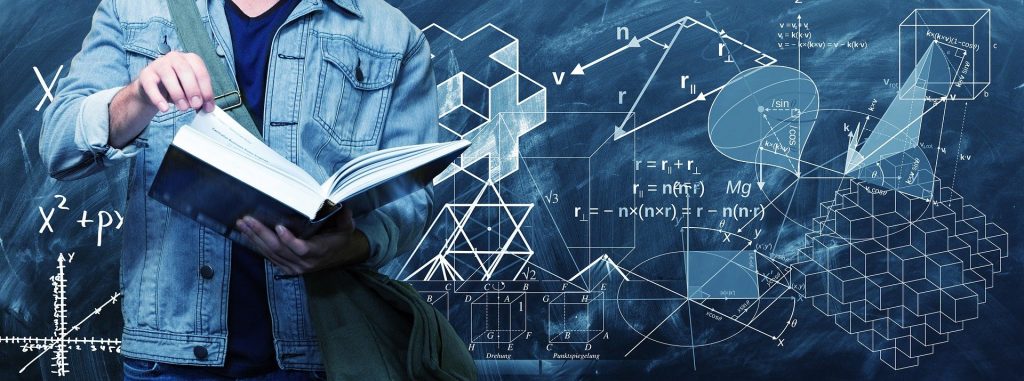Advanced Mathematical Methods for Engineering: introduction.

The purpose of this introductory course is to introduce the student to basic topics of Mathematical Analysis for functions in one and more variables.
The course is designed for those students who believe they have insufficient knowledge in Mathematical Analysis to follow the Advanced Mathematical Methods for Engineering course or for those students who need to refresh these arguments in their memory. Those who have attended, during their three-year degree, courses in Analysis 1,2 and a course in Methods can use the videolessons to recall some basic facts, essential for a correct understanding of the topics covered in the Advanced Mathematical Methods for Engineering course.
Here follows a list of the arguments which. will be treated.
For the topic “Cauchy Problems “ (lessons will be between early October and late October):
- continuous and differentiable functions in several variables (with examples in 2 variables): Lagrange theorem, computation of partial derivatives
- definition of Lipschitz function in one variable, examples
- diagonalization of matrices and computation of eigenvalues and eigenvectors
- notion (mainly graphics ) of integral according to Riemann and some properties (example: classes of integrable functions)
- examples of integrable functions
- exercises on integrals in one variable: integrals of rational fractional, integration by parts and substitution
For the topic “Integral according to Lebesgue” (the lessons will be between late October and mid-November):
- integrability in an improper sense
- examples of integrable and non-integrable functions
- comparison theorems and asymptotic comparison
For the topic “Banach Spaces” (the lessons will start from mid-November):
- examples of convergent numerical sequences (eg: geometric)
- examples of convergent and divergent numerical series (always simple: powers, geometric …)
- sequences of functions: punctual and uniform convergence
For the topic “Distributions and PDE” (the lessons will be in December and January):
- Fourier series and Fourier transforms (definitions, properties, simple calculus exercises)
- definition of gradient and Laplacian
- divergence theorem in R^n
Lo scopo di questo corso propedeutico è quello di introdurre lo studente ad argomenti di base di
Analisi Matematica per funzioni in una e piu’ variabili.
Il corso è pensato per quegli studenti che ritengono di avere un bagaglio culturale in Analisi Matematica non sufficiente per seguire il corso di Advanced Mathematical Methods for Engineering o per quegli studenti, che pur avendo già approfondito questi argomenti di base, lo hanno fatto in tempi non recenti e devono quindi rinfrescare questi argomenti alla loro memoria.
Quanti hanno seguito, durante la propria laurea triennale, corsi di Analisi 1,2 e un corso di Metodi possono sfruttare le videolezioni per richiamare alcuni concetti di base, indispensabili per una corretta comprensione degli argomenti trattati nel corso Advanced Mathematical Methods for Engineering.
Piû in dettaglio segue qui un elenco degli argomenti che. verranno trattati.
Per l’argomento “Problemi di Cauchy'” (le lezioni saranno tra i primi di ottobre e fine ottobre):
- funzioni continue e differenziabili in piu’ variabili (con esempi in 2 variabili):
- teorema di Lagrange, calcolo di derivate parziali
- definizione di funzione lipschitziana in una variabile, esempi
- diagonalizzazione di matrici e calcolo di autovalori e autovettori
- nozione (soprattutto grafica) di integrale secondo Riemann e alcune proprietà (esempio: classi di funzioni integrabili)
- esempi di funzioni in integrabili
- esercizi su integrali in una variabile: integrali di razionali fratte, integrazione per parti e sostituzione
Per l’argomento “Integrale secondo Lebesgue” (le lezioni saranno tra fine ottobre e metà novembre):
- integrabilità in senso improprio (generalized Riemann Integral in inglese)
- esempi di funzioni integrabili e non
- teoremi del confronto e confronto asintotico
Per l’argomento “Spazi di Banach'” (le lezioni saranno a partire da metà novembre):
- esempi di successioni numeriche convergenti (es: geometriche)
- esempi di serie numeriche convergenti e divergenti (sempre semplici: potenze, geometriche…)
- successioni di funzioni: convergenza puntuale ed uniforme
Per l’argomento “Distribuzioni e PDE'” (le lezioni saranno a dicembre e gennaio):
- serie e trasformate di Fourier (definizioni, proprietà, esercizi di calcolo semplici)
- definizione di gradiente e laplaciano
- -teorema della divergenza in R^n

